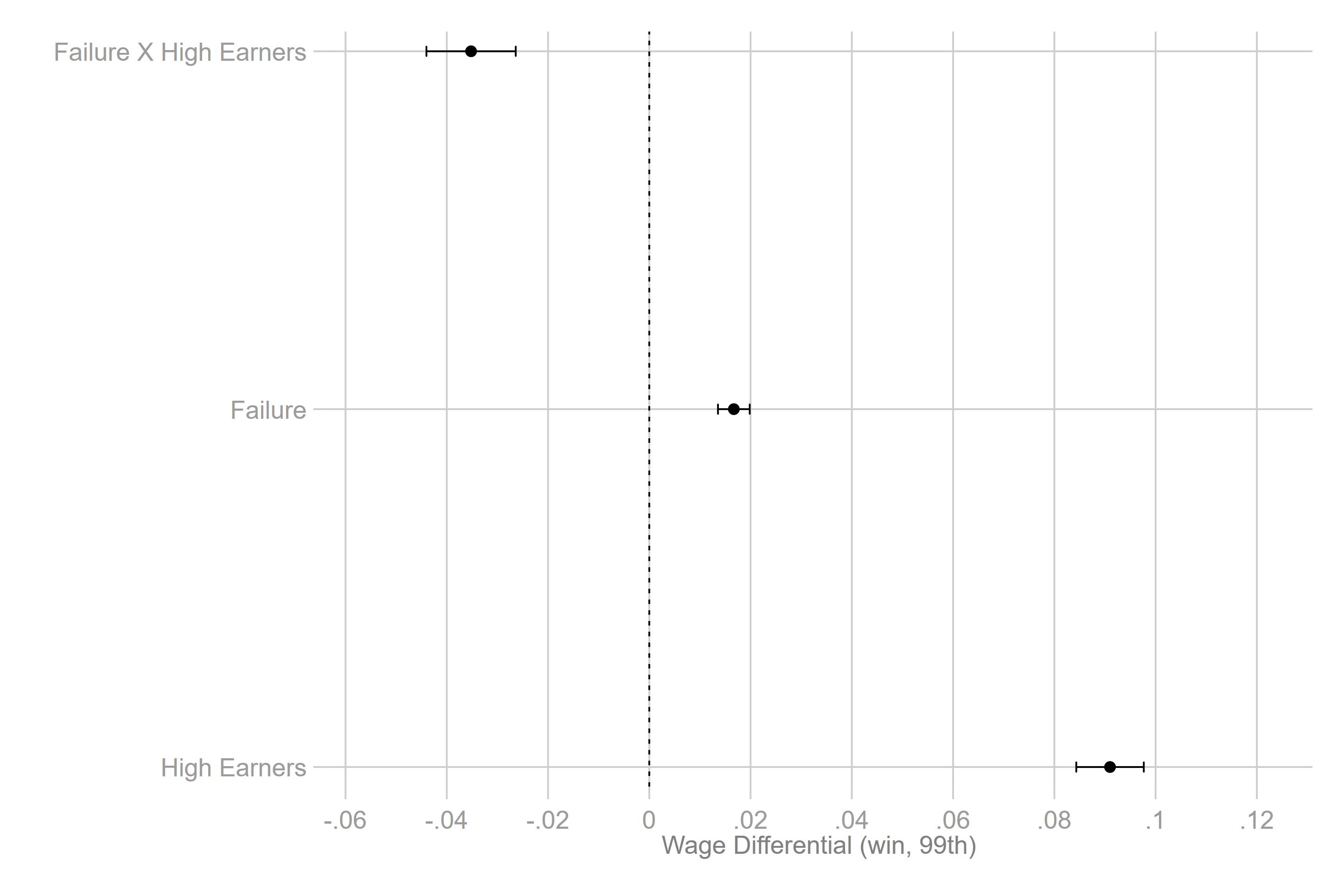
Beyond Blame: Attribution, Evaluative Stigma, and Employee Careers after Employer Failure
with Matt Marx
Administrative Science Quarterly, 2025
Leaders of failed companies typically experience career setbacks, however, most employees do not—except when the failure involves a scandal, when the industry is shrinking, or when employees are from marginalized demographic groups.
Employment continuity facilitates access to career opportunities, professional growth, and financial security, making involuntary disruptions--such as employer failures--potentially consequential for individuals’ career trajectories. Although prior research has explored how organizational leaders’ careers fare following employer failure, implications for the modal employee remain theoretically unclear. Integrating theories of evaluative stigma, evaluation, and careers, we develop a theoretical framework to clarify how employer failure relates to subsequent career outcomes for employees. Using confidential, anonymized data from the US Census complemented by detailed, identifiable data from the Automatic Speech Recognition industry, we find that employer failure is negatively related to organizational leaders’ wage growth, consistent with internal attribution and evaluative stigma. Conversely, modal employees experience wage (and industry retention) outcomes comparable to their unaffected peers, consistent with an affiliation with a failed employer not stigmatizing this set of employees. However, modal employees are not always unscathed: Career penalties emerge when failure involves a scandal, when industry labor market conditions become more competitive, and when employees belong to marginalized demographic groups (gender, race, immigration). By clarifying conditions of evaluative stigma, we extend organizational research on careers and evaluations, highlighting the conditions under which affiliations with failed firms are related to subsequent career outcomes.
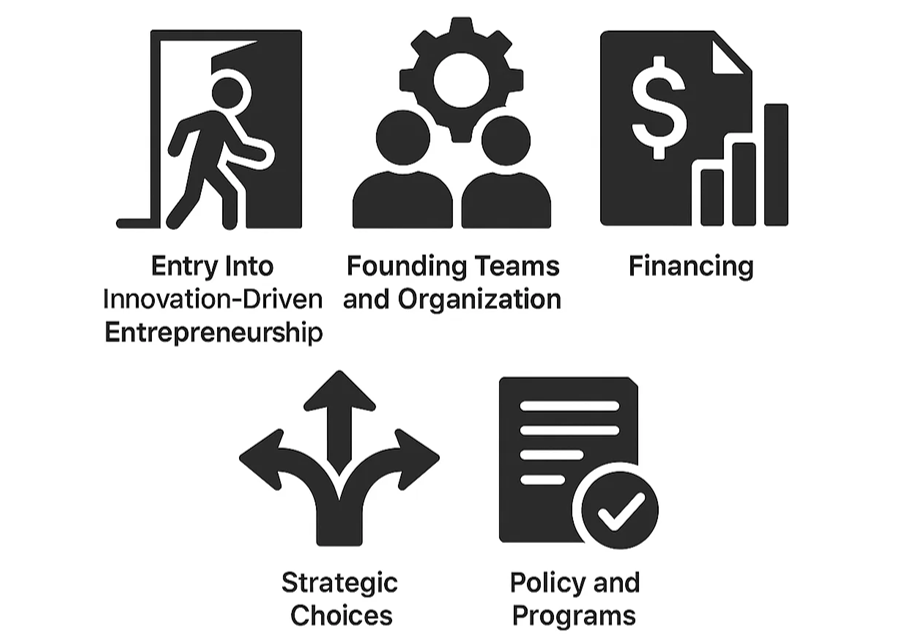
Innovation-Driven Entrepreneurship
with Daniel Fehder and Yael Hochberg
Journal of Economic Literature, forthcoming
NBER WP 28990 (preprint)
Innovation-driven entrepreneurship is distinct from other forms of entrepreneurship in terms of its founders, organizational design, financing, strategic choices, and support policies, requiring targeted mechanisms and policies specific to IDE firms
Innovation-driven entrepreneurship (IDE) is viewed as a key driver of economic growth. This review provides a structured guide to the key themes of the growing literature on the economics of IDE, which differs substantially in its nature from other types of entrepreneurship. We describe the key themes of the growing literature speaking to the central economic questions raised by IDE, including who enters into IDE activity, the nature of its founding teams and organization, its financing, the strategic choices faced by IDE founders, and policy and programs to support IDE activity. The tendency of much of the empirical economics literature to date to confound IDE with other types of entrepreneurial ventures offers a significant opportunity for research focused specifically on the IDE phenomenon.
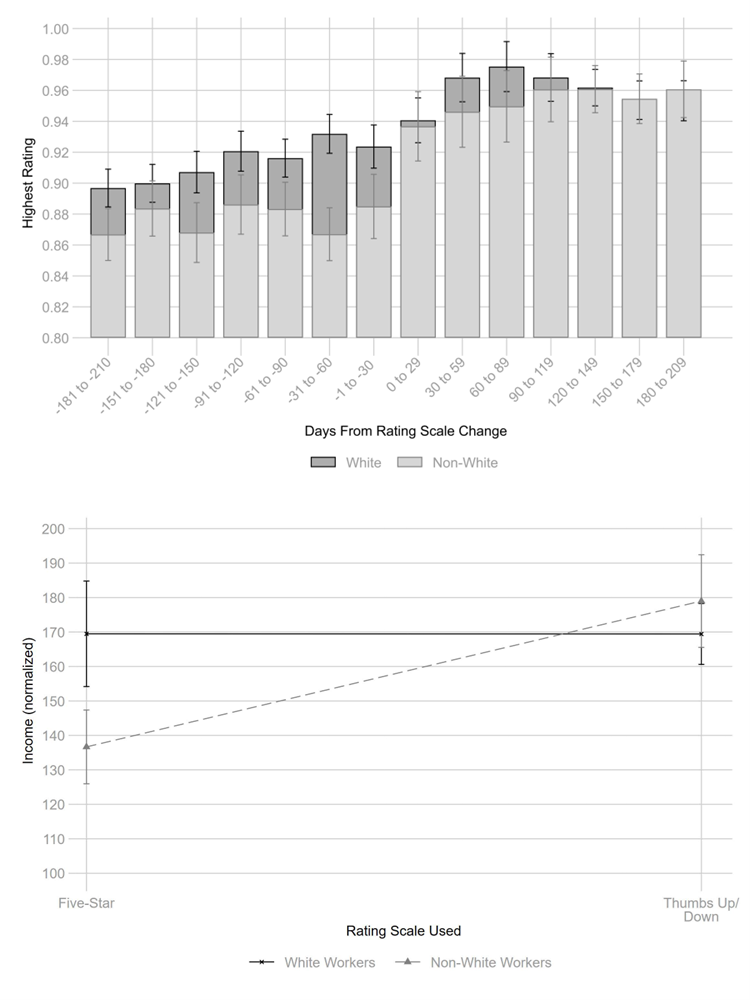
Scale Dichotomization Reduces Customer Racial Discrimination and Income Inequality
with Sora Jun, Demetrius Humes, and Katherine DeCelles
Nature, 2025 (open access)
A change from a five-star rating scale to a thumbs up/thumbs down rating scale eliminates of racial differences in ratings and pay.
Cover article
Online platforms are rife with racial discrimination, but current interventions focus on employers rather than customers. We propose a customer-facing solution: changing to a two-point rating scale (dichotomization). Compared with the ubiquitous five-star scale, we argue that dichotomization reduces modern racial discrimination by focusing evaluators on the distinction between ‘good’ and ‘bad’ performance, thereby reducing how personal beliefs shape customer assessments. Study 1 is a quasi-natural experiment on a home-services labour platform (n = 69,971) in which the company exogenously changed from a five-star scale to a dichotomous scale (thumbs up or thumbs down). Dichotomization eliminated customers’ racial discrimination whereby non-white workers received lower ratings and earned 91 cents for each US dollar paid to white workers for the same work. A pre-registered experiment (study 2, n = 652) found that the equalizing effect of dichotomization is most prevalent among evaluators holding modern racist beliefs. Further experiments (study 3, n = 1,435; study 4, n = 528) provide evidence of the proposed mechanism, and eight supplementary studies support measurement and design choices. Our research offers a promising intervention for reducing customers’ subtle racial discrimination in a large section of the economy and contributes to the interdisciplinary literature on evaluation processes and racial inequality.
Coverage: Fast Company, The Globe and Mail, Harvard Business Review, Nature Podcast, Phys.org, Yale Insights
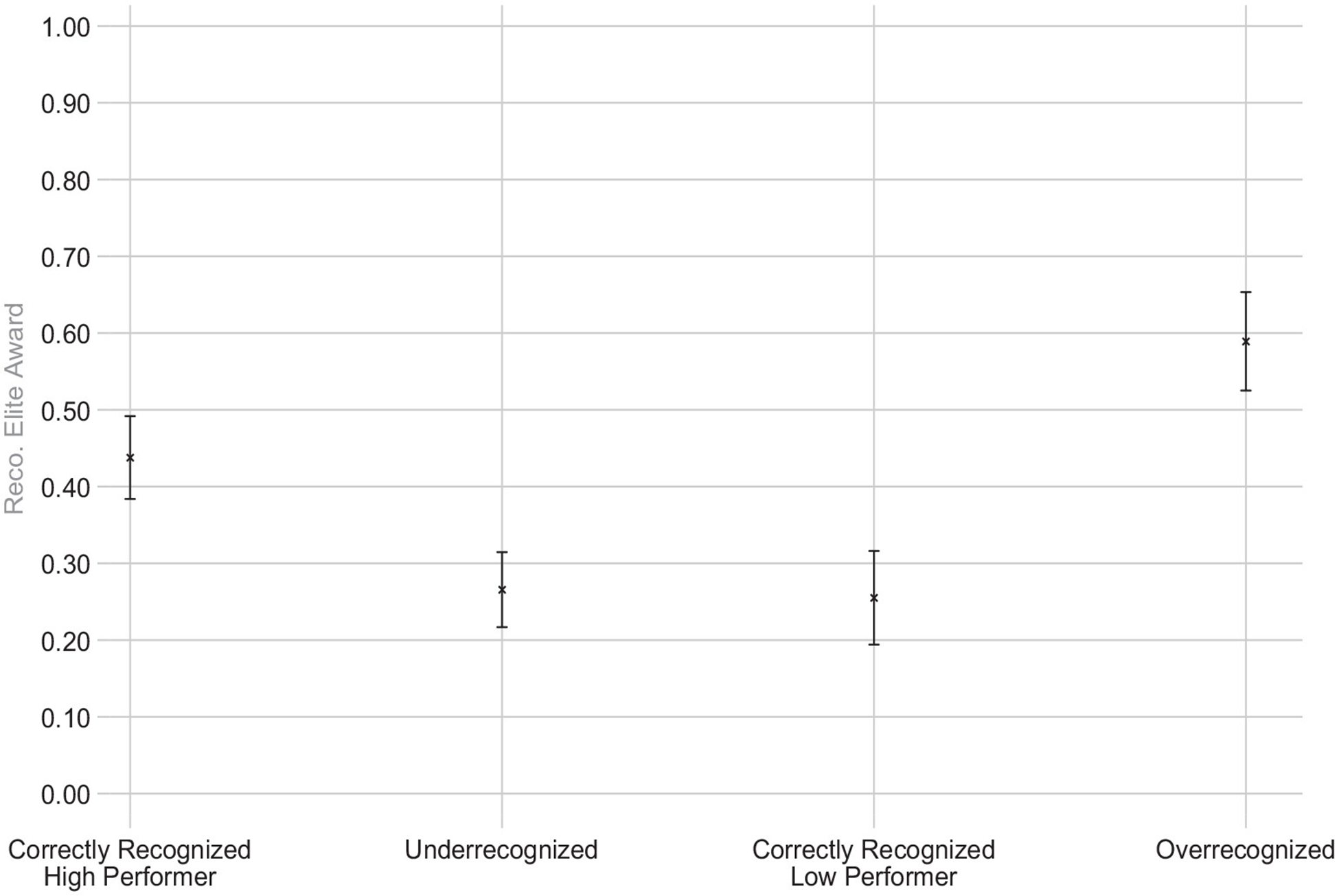
(Not) Getting What You Deserve: How Misrecognized Evaluators Reproduce Misrecognition in Peer Evaluations
with Mabel Abraham and James Carter
American Sociological Review, 2025 (open access)
Individuals who receive evaluations that underrecognize or overrecognize their achievements are more likely to assess others similarly, but for different reasons.
2024 Best Paper Proceedings, Academy of Management
In most evaluation systems—such as those governing the allocation of prestigious awards—the evaluator’s primary task is to reward the highest quality candidates. However, these systems are imperfect; top performers may not be acknowledged and thus be underrecognized, and low performers may receive unwarranted recognition and thus be overrecognized. An important feature of many evaluation systems is that people alternate between being candidates and being evaluators. How does experiencing misrecognition as a candidate affect how people subsequently evaluate others? We develop novel theory that underrecognition and overrecognition lead people to reproduce those experiences when they are evaluators. Across three studies—a quasi-natural experiment and two preregistered, multistage experiments—we find that underrecognized evaluators are less likely to grant recognition to others—even to the highest-performing candidates. Conversely, overrecognized evaluators are more likely to grant rewards to others—even to the lowest-performing candidates.
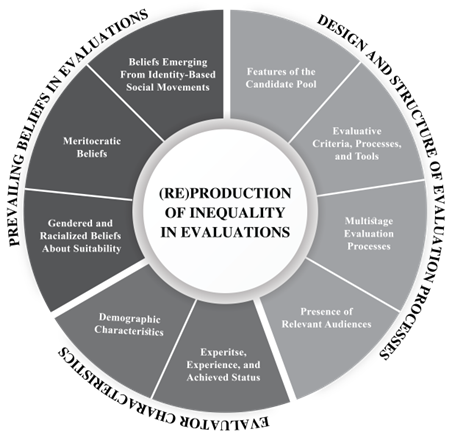
The (Re)Production of Inequality in Evaluations: A Unifying Framework Outlining the Drivers of Gender and Racial Differences in Evaluative Outcomes
with Mabel Abraham and Gabrielle Lamont-Dobbin
Research in Organizational Behavior, 2024 (open access)
A conceptual framework for understanding and categorizing research on inequality and evaluations in professional settings.
Evaluations play a critical role in the allocation of resources and opportunities. Although evaluation systems are a cornerstone of organizational and market processes, they often reinforce social and economic inequalities. The body of organizational research on inequality and evaluations is extensive, but it is also fragmented, siloed within specific contexts and types of evaluations (e.g., hiring, performance). As a result, we currently lack a systemic understanding of the conditions under which inequalities emerge. This paper provides a unifying framework to identify how gender and racial inequality is produced and reproduced in evaluations across professional contexts (e.g., digital platforms, entrepreneurship, traditional employment). Our framework categorizes the drivers of inequality into three main areas: prevailing beliefs in evaluative contexts, the design and structure of evaluation processes, and the characteristics of evaluators. Our approach not only sheds light on the common processes that exacerbate inequality but also underscores why an integrative framework is critical for both theoretical advancement and enacting effective reforms.
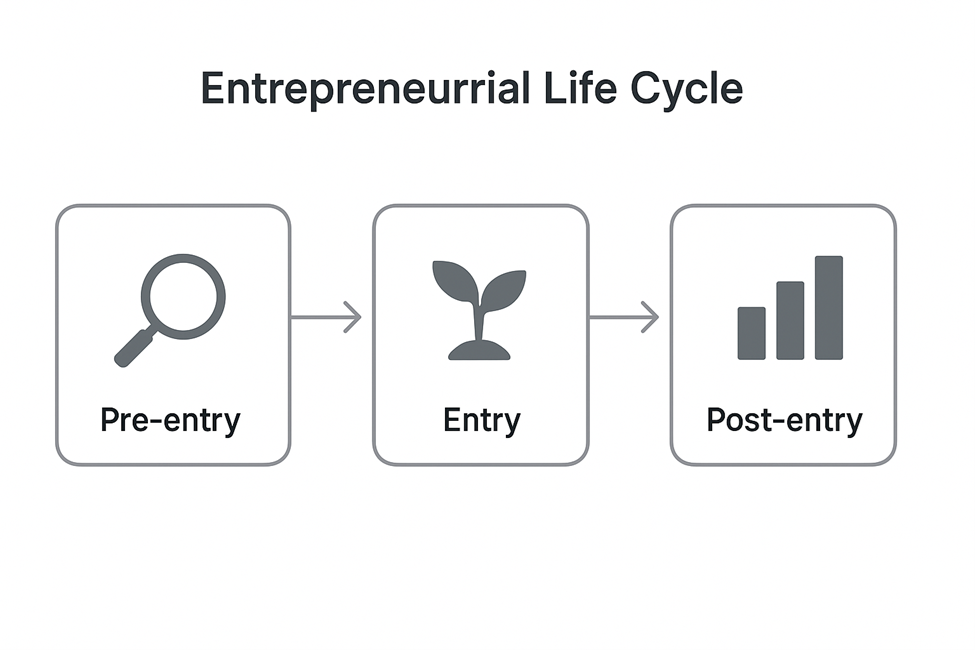
The Sociology of Entrepreneurship Revisited
with Ranjay Gulati and Olav Sorenson
Annual Review of Sociology, 2024 (open access)
A framework for understanding the current state of sociological research on entrepreneurship focusing on three phases: pre-entry, entry, and post-entry.
Over the last two decades, the sociology of entrepreneurship has exploded as an area of academic inquiry. Most of this research has been focused on understanding the environmental conditions that promote entrepreneurship and processes related to the initial formation of an organization. Despite this surge in activity, many important questions remain open. Only more recently have scholars begun to turn their attention to what happens to organizations, and the people connected to them, as they mature and move through the life cycle of entrepreneurship. These open questions, moreover, connect to many classic themes in the literature on careers, organizational sociology, stratification, and work and occupations. Using a framework that focuses on three phases of the entrepreneurial life cycle—pre-entry, entry, and post-entry—we summarize sociological research on entrepreneurship and highlight opportunities for future research.
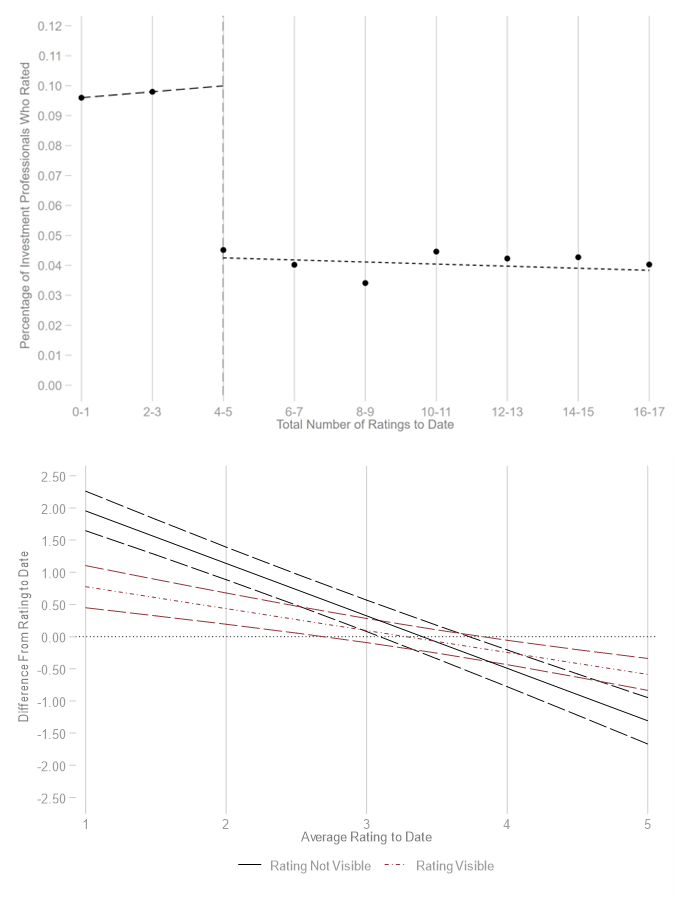
From Audience to Evaluator: When Visibility into Prior Evaluations Leads to Convergence or Divergence in Subsequent Evaluations Among Professionals
Organization Science, 2024 (open access)
Professionals are influenced by the ratings they see when evaluating peers, with only those with the most expertise resisting this peer deference.
Collective evaluation processes, which offer individuals an opportunity to assess quality, have transcended mainstream sectors (e.g., books, restaurants) to permeate professional contexts from within and across organizations to the gig economy. This paper introduces a theoretical framework to understand how evaluators’ visibility into prior evaluations influences the subsequent evaluation process: the likelihood of evaluating at all and the value of the evaluations that end up being submitted. Central to this discussion are the conditions under which evaluations converge—are more similar to prior evaluations—or diverge—are less similar—as well as the mechanisms driving observed outcomes. Using a quasinatural experiment on a platform where investment professionals submit and evaluate investment recommendations, I compare evaluations that are made with and without the possibility of prior ratings influencing the subsequent evaluation process. I find that when prior ratings are visible, convergence occurs. The visibility of prior evaluations decreases the likelihood that a subsequent evaluation occurs by about 50%, and subsequent evaluations become 54%–63% closer to the visible rating. Further analysis suggests that peer deference is a dominant mechanism driving convergence, and only professionals with specialized expertise resist peer deference. Notably, there is no evidence that initial ratings are related to long-term performance. Thus, in this context, convergence distorts the available quality signal for a recommendation. These findings underscore how the structure of evaluation processes can perpetuate initial stratification, even among professionals with baseline levels of expertise.
Coverage: Yale Insights
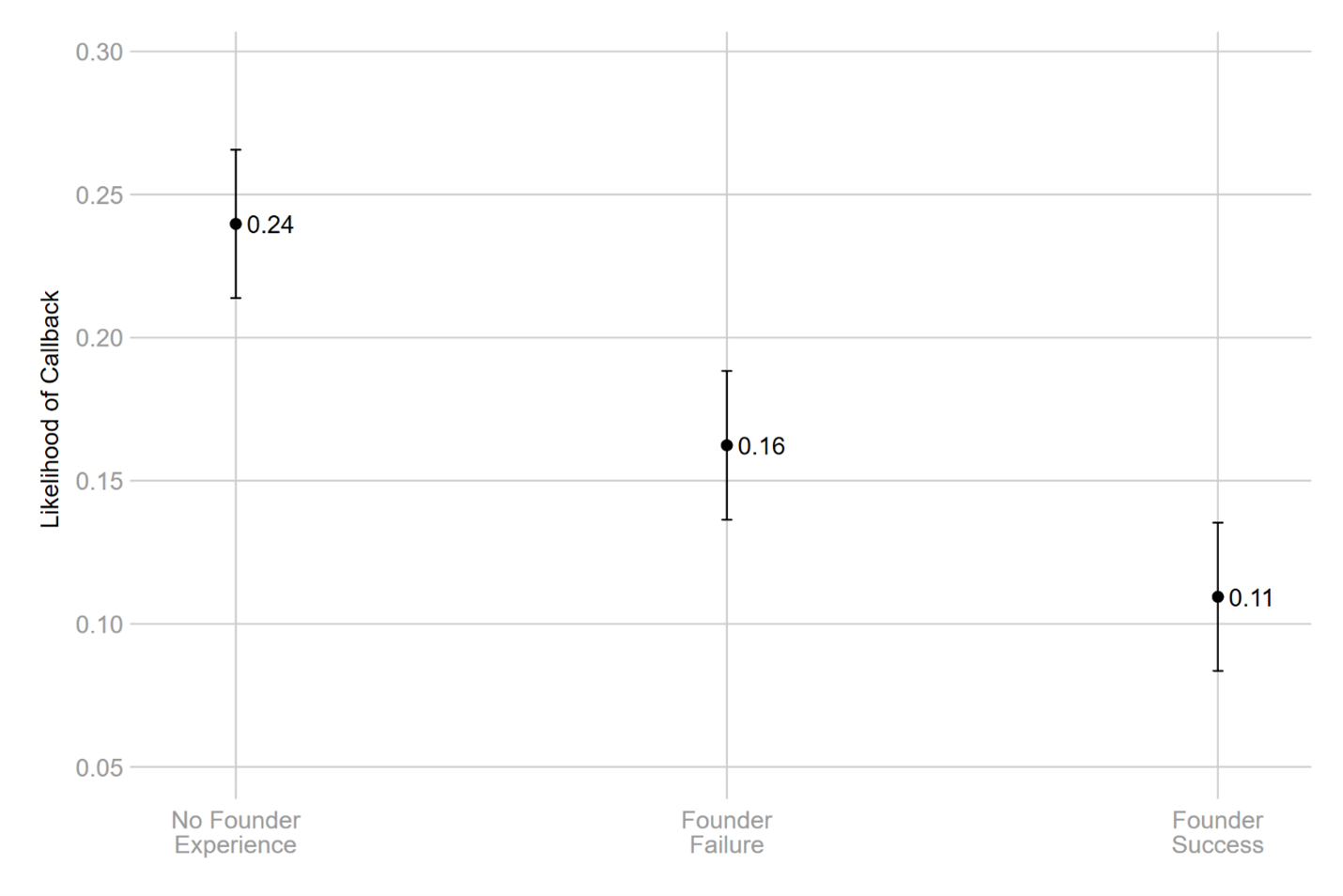
The Evaluation of Founder Failure and Success by Hiring Firms: A Field Experiment
with Melody Chang
Organization Science, 2023 (open access)
Firms are less likely to interview former founders than non-founders, with successful founders fairing worst.
2020 Best Entrepreneurship Paper, Academy of Management (OMT Division)
2020 Best Paper Proceedings, Academy of Management
2019 Best Paper Nominee, Strategic Management Society
Organizations tout the importance of innovation and entrepreneurship. Yet, when hiring it remains unclear how they evaluate entrepreneurial human capital—namely, job candidates with founder experience. How hiring firms evaluate this experience—and especially how this evaluation varies by entrepreneurial success and failure—reveals insights into the structures and processes within organizations. Organizations research points to two perspectives related to the evaluation of founder experience: Former founders may be advantaged, due to founder experience signaling high-quality capabilities and human capital, or disadvantaged, due to concerns related to fit and commitment. To identify the dominant class of mechanisms driving the evaluation of founder experience, it is important to consider how these evaluations differ, depending on whether the founder’s venture failed or succeeded. To isolate demand-side mechanisms and hold supply-side factors constant, we conducted a field experiment. We sent applications varying the candidate’s founder experience to 2,400 software engineering positions in the United States at random. We find that former founders received 43% fewer callbacks than nonfounders and that this difference is driven by older hiring firms. Further, this founder penalty is greatest for former successful founders, who received 33% fewer callbacks than former failed founders. Our results highlight that mechanisms related to concerns about fit and commitment, rather than information asymmetry about quality, are most influential when hiring firms evaluate former founders in our context.
Coverage: Harvard Business Review, Financial Times, Forbes, Fortune, Yale Insights
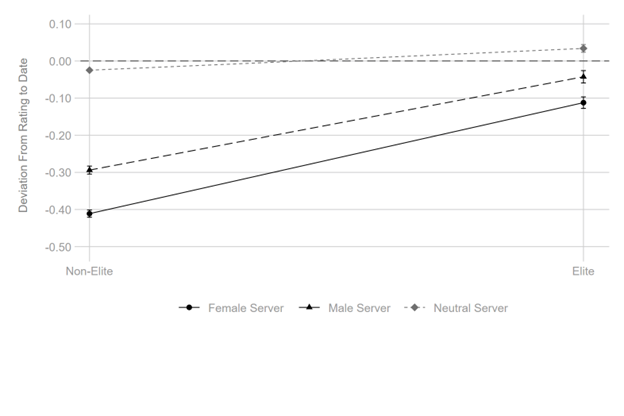
The Disciplining Effect of Status: Evaluator Status Awards and Observed Gender Bias in Evaluations
with Marina Gertsberg
Management Science, 2022 (open access)
Receiving a status award is related to a reduction in gender-based differences in one’s subsequent evaluations.
Included in Management Science Virtual Special Issue on Diversity, Equity, and Inclusion
We theorize that status awards will have a disciplining effect on evaluators, changing how they evaluate. Specifically, status awards will lead evaluators to place less weight on unreliable indicators of candidate quality, such as gender. We test this theory using data from restaurant evaluations on Yelp, focusing on the relationship between an evaluator’s restaurant rating and their reporting of being served by a man or a woman in their review text. We use Yelp’s evaluator status award (“Elite”) to analyze whether observed gender bias in the star ratings given to restaurants decreases after an evaluator receives this status award. We find that evaluators rate restaurants more similarly after receiving the award, regardless of whether they report being served by a man or a woman. Status awards in our context close the gender gap in restaurant ratings by 56.5% (a 0.07 stars improvement out of an initial rating gap of −0.13 stars). This reduction in gender bias is mostly due to a decrease in the number of extremely low (1 star) ratings in reviews that reference female servers. Research on status and evaluations has mostly focused on how evaluators react to increases in candidate status. We demonstrate the importance of evaluator status as a mechanism for decreasing observed gender differences in evaluations.
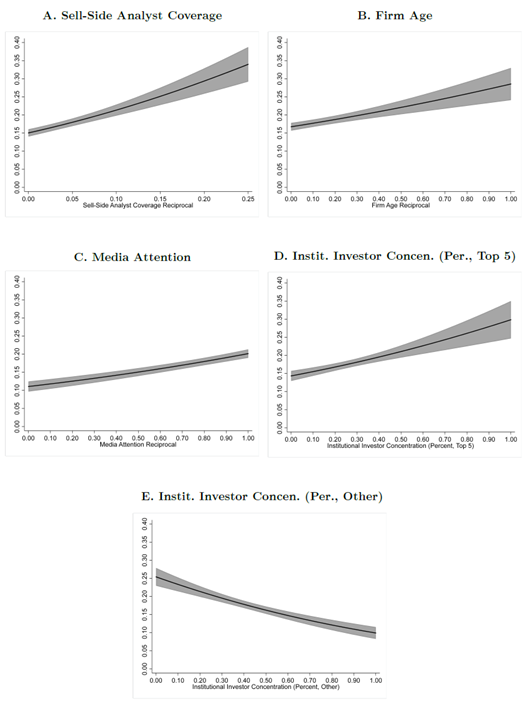
Here’s an Opportunity: Knowledge Sharing among Competitors as a Response to Buy-in Uncertainty
Organization Science, 2018 (open access)
Knowledge sharing among competitors is more likely when positive evaluations are necessary.
2015 Best Student Paper, Academy of Management (OMT Division)
2015 Best Paper Proceedings, Academy of Management
Although knowledge sharing among competitors is seemingly counterintuitive, scholars have found that competitors share knowledge under certain conditions: among actors who have a preexisting relationship and who expect direct reciprocity. However, there are examples of knowledge sharing among competitors that cannot fully be explained using these relational mechanisms. In this study, I propose that in markets where competitors are a set of key stakeholders, knowledge sharing is a strategic response to high levels of buy-in uncertainty related to a potential opportunity, namely, the likelihood that stakeholders will come to realize the value of a potential opportunity in a timely fashion. Using a unique data set of knowledge sharing among investment professionals on a digital platform, this study leverages variation in the platform’s knowledge-sharing structure to test this theory. I find that knowledge sharing among these competitors is most likely when buy-in uncertainty for a given opportunity is high and that this knowledge sharing does lead to subsequent buy-in.
Coverage: Yale Insights

Pursuing Quality: How Search Costs and Uncertainty Magnify Gender-based Double Standards in a Multistage Evaluation Process
with Mabel Abraham
Administrative Science Quarterly, 2017
Gender-based double standards are more likely when evaluators face greater search costs and uncertainty, even when objective performance is available.
2018 Mark Granovetter Best Article Prize Runner-up
Despite lab-based evidence supporting the argument that double standards—by which one group is unfairly held to stricter standards than another—explain observed gender differences in evaluations, it remains unclear whether double standards also affect evaluations in organization and market contexts, where competitive pressures create a disincentive to discriminate. Using data from a field study of investment professionals sharing recommendations on an online platform, and drawing on status theory, we identify the conditions under which double standards in multistage evaluations contribute to unequal outcomes for men and women. We find that double standards disadvantaging women are most likely when evaluators face heightened search costs related to the number of candidates being compared or higher levels of uncertainty stemming from variation in the amount of pertinent information available. We rule out that systematic gender differences in the actions or characteristics of the investment professionals being evaluated are driving these results. By more carefully isolating the role of this status-based mechanism of discrimination for perpetuating gender inequality, this study identifies not only whether but also the conditions under which gender-based double standards lead to a female disadvantage, even when relevant and objective information about performance is readily available.
Coverage: Bloomberg, Harvard Business Review, New York Post, Quartz, Rotman Institute for Gender + the Economy, Worth